|
Just a few weeks to go to the end of the year, "Time is running out", the message from government. Businesses are not yet prepared for the new trade deal with the EU. No surprise really, great uncertainty still remains about the shape of the deal, let alone, the detail within.
Companies are scrambling to get ready ahead of the deadline on January 1st, without any clear idea of the basis on which they will trade, with European partners. "They won't give us a deal like Canada" bemoans the Prime Minister. Hardly surprising, the nearest Canadian fishing grounds are in British Columbia. That's a haul too far, even for the itinerant fisherman of France and Spain. The industry remains a fish bone of contention, despite the marginal contribution to UK GDP. "We must prepare for an "Australia-style" deal the latest message. That's a "no-deal" deal in reality speak. Companies are urged to step up arrangements for an Australia-style arrangement. No thought of just in time manufacturing, rules of origin, regulatory standards, agricultural policy, the Irish border. The government Brexit advice service, is unable to give advice, because they do not know as yet, the advice to give. "There is a lack of urgency on the part of too many traders". Lord Agnew of Oulton told the Treasury select committee this week. The Minister charged with Brexit preparedness, insisted he was not seeking to apportion blame, just pointing out an obvious case of indolence and sloth, on the part of some British traders. "Business is running out of patience, with Brexit lectures from Number Ten", the headlines in the Times today. Dame Carolyn Fairbairn head of the CBI, called for "national unity" between business and government, ideally before she leaves office next week. A meeting with the Prime Minister and business leaders this month was described as "terrible, disappointing and more of a lecture than an exchange of views. "They just don't get it" said one. "They just don't have a clue" claimed another. Johnson stayed for a few moments before handing over to Michael Gove. Gove continued to trot out the same old trope. "We will go out into the world as a confident, independent, free trading, freedom embracing state." Yes and we get to eat our own fish too! The Director General of the CBI said this week, "this is a time to bury the hatchet" ... where exactly was not made clear ... but time is running out ...
0 Comments
House price growth reached a five year high in October. Prices increased by 5.8% in October, according to the latest data from Nationwide. Prices increased by 7.5% last month according to the latest data from the Halifax building society.
Mortgage approvals increased to 91,500 in September, the highest level since 2007. The stamp duty holiday is providing a positive boost to activity. Behavioural shifts are impacting on the market according to the data from a Nationwide survey. 10% were in the process of moving as a result of the pandemic. A further 20% were considering a move for the same reason. 35% were considering enhancing their home, almost half wanted to add or maximise space. Retail sales figures demonstrate the growth in DIY and home improvement. DIY sales increased by almost 30%, year on year last month. Robert Gardner, Nationwide's Chief Economist warns, "The outlook remains highly uncertain. Activity is likely to slow in the coming quarters". Unemployment is expected to rise, as the furlough scheme ends this month. Earnings will be under pressure, the house price to earnings ratio ticks higher. The stamp duty holiday expires at the end of March. Martin Beck, at Oxford Economics, said: “The property market is unusually insulated from the economy’s troubles, in comparison with past recessions. Those hardest hit by job losses and cuts to income appear to be the young and low-paid, who typically are not homeowners nor home buyers.” The tide in activity may be set to turn ... but not just yet ... Lest we forget! The US election is just days away. This could mean the end of our West Wing WTF series if the Biden-Harris ticket gets over the line ... That's all for this week! Have a great, safe, week-end ... Hands, Face and Space ... John Don't forget you can now listen the The Saturday Economist Live as a weekly Podcast. The TSEL monthly review will be available on our media channel over the weekend. Retail sales were up by almost 5% in September. Exclude automotive fuel and volumes increased by 6.4% year on year. DIY leads the retail rally. DIY sales were up by 27%, sales of flowers, plants and seeds, increased by 30%.
Working from home is boosting productivity, in households at least. "Don't just sit there do something", the cry. Household good sales were up by 10%, carpet sales were up by 50%. Take a break? Sneak into the bedroom and read a book. Book sales were up by 14%. Losers in the retail rally were fashion clothing, down 14%. Computers and tele-comm sales were down by 40%. Thinking of music and movies, then stream again, traditional outlet sales were down by 9%. This week Gap announced the possible closure of outlets in Europe, as part of a world wide review. This month, John Lewis announced a retail shake up which will see the closure of some stores and a focus on on line activity. Online sales are expected to rise to 70% of JLP sales this year. On line sales in Waitrose may increase to 20% of all sales by the end of next year. Retailers are shrinking retail footprints as online penetration increases. In September, online sales increased by over 50% accounting for 28% of all retail transactions. Online food sales increased by 12%, accounting for just over 10% of all food sales. Shopping habits have now been transformed by the lock-down, especially in food. Morrisons doubled delivery capacity in the first six months of the year. Tesco, Sainsbury's and Asda followed suit. Capacity is expected to double again within two years. The pressure on logistics is intense. Distribution centres are now the hot property in property. Will the retail boom continue, as the lock down measures take effect? Consumer confidence slipped this month according to the latest GfK data. Fears of job losses will overhang spending as the furlough scheme ends this month. The Chancellor will be forced to step up his spending plans yet again, to support growth through the Bleak Mid Winter Plan ... Government borrowing in the first six months of the year, increased to £208 billion. That's an increase of £175 billion on prior year. Total debt increased to £2.1 trillion at the end of September, that's 104% of GDP.
In the first six months of the year, the Debt Management Office issued £306 billion of gilts. Net of redemption, new gilt issuance totaled £240 billion. So how was that funded? The Bank of England purchased some £268 billion of gilts over the period. The Old Lady was forced to step in as the "buyer of last resort". The pretense of QE abandoned, the minutes of the MPC meeting now openly talk of the "purchase of government bonds". According to Andrew Bailey, Governor of the Bank of England, "the government would have struggled to fund itself" without central bank intervention. In the current financial year, markets expect total borrowing to increase to £325 billion. The level of debt could increase to £2.5 trillion by the end of the next financial year. Central Bank holdings may increase to £1 trillion to finance the deficit. The process of "Dire Straits Economics", that's "money for nothing, gilts for free", is expected to continue. For the moment, markets are unconcerned. Moody's may have lowered the UK credit rating from Aa2 to AA3 this month but Sterling closed higher against the Dollar, at $1.3029. More spending is expected as the "Fears for Tiers" spread. The Chancellor was forced to announce a further support package for business this week, the fourth in as many months. Criticism of the end of the furlough scheme mounted. The chancellor was obliged to expand the Job Support Scheme. The new plan will pay a larger share of workers' wages, with more money for the self employed and grants for businesses, forced to close in areas affected by lock down measures. The latest data suggests the recovery is still intact. For the year as a whole the economy is expected to contract by 10% with growth of 6.5% to follow in 2021. The big question is just how many jobs will be lost by the end of the year. The latest offerings from Treasury may have little impact over the next few months ... That's all for this week! Have a great, safe, week-end ... Hands, Face and Space ... John Don't forget you can now listen the The Saturday Economist Live as a weekly Podcast. The TSEL monthly review will be available on our media channel at the end of the month. Ten weeks to go to the end of the transition period, the Prime Minister has realized a Canada style deal with the EU, is not on offer. "A relationship based on friendship and free trade will not be available from our partners of forty five years." said the PM.
"The EU has refused to negotiate seriously for much of the last few months" said Johnson, (and simply agree with the UK government he could have added). Michel Barnier has been told not to take the train to London next week. Mind the gap! A level fishing ground, remains the catch. Boris Johnson has reached the conclusion, it is time to prepare for a deal more like Australia. No car exports, no involvement in Airbus and no syndication for big pharma, presumably. The deal would be based on the simple principles of global free trade. That's a no deal in any other language. The comparison with Australia is of little comfort. Exports from Australia to the EU were worth some £25 billion in 2019. Compare that to £172 billion of UK exports to the EU in the same year and it's small change. "With high hearts and complete confidence, we will prepare for a future, in which we will prosper mightily, as an independent, free trading nation, controlling our own borders, fishing our own fisheries and setting our own laws." So what of the city of London? According to Phil Aldrick in the Times today, the financial services sector has been betrayed by a government which no longer cares. "There is nothing in the negotiations, for a sector which accounts for almost 7% of GDP, employs one million people and pays £75 billion per year in taxes. Fishing in comparison, accounts for 0.1% of GDP, employs 24,000 people and is reliant on state aid. Johnson promised in December last year, he could "absolutely guarantee we will get a deal, not just any deal but a great deal". He had a deal which was oven ready. Now time is running out. Whatever happens in the remaining weeks, there will be, no deal for financial services. The bankers are preparing to relocate to Europe. For parts of the manufacturing sector, relocation may also become an option. Despite the reassuring words of the Prime Minister, Aussie rules are not O.K. ... The IMF released the latest World Economic Outlook this week. Gita Gopinath, Chief Economist was on hand to deliver the news.
The global economy is expected to contract by -4.4% this year with a recovery of over 5% anticipated in 2021. This is slightly better than the outlook in June, which predicted a setback of -4.9% this year and a recovery of +5.4% in 2021. China is now expected to grow by almost 2% in the current year. Growth of just 1% was expected in June. The setback in the USA has been mitigated with the loss of output of -8% forecast in June, now expected to be just over -4% in October. US Government borrowing of $3 trillion dollars in the financial year just ended will have assisted the process. The setback in the EU will be around -8%, the loss of output in the UK around -9.8%. Concerns for the Indian subcontinent have increased as the total Covid cases increased to 7.5 million. Output is now expected to fall by 10% in the year. The IMF warns, although the global economy is "coming back", the recovery will be long, uneven and uncertain. Economies will face difficult paths to pre-pandemic levels of activity. Preventing further setbacks, will require that policy support is not withdrawn prematurely. "It is important for governments to continue to support viable firms, as millions of jobs are at risk." It is a message all too pertinent for the Chancellor Rishi Sunak. The latest data for the UK suggests the unemployment rate increased to 4.5% in August with 1.5 million out of work. The increase in the claimant count to 2.7 million in September, suggests much worse is yet to come. The furlough scheme ends this month, with the UK economy in tiers ... That's all for this week! Have a great, safe, week-end ... Hands, Face and Space ... Just when you thought it was safe to leave the bubble and nix the rule of six, the traffic light system is coming. Fears for tiers and local lock-down abound. Pubs and restaurants may have to close in Northern Cities. More job losses seem inevitable in the hospitality sector.
The Chancellor is already handing out lifebelts, on a cruise ship heading for the ice. The Chancellor has announced a new Job Support scheme starting in November. The Treasury will pay one third of the wages of those in businesses forced to close; Closures as a result of new measures, yet to be announced. The support scheme will last six months and cost around £2.4 billion. This is not an extension of the furlough scheme. It should have been. The cost of £2.4 billion of the new scheme, should be added to the £6 billion for the Job Retention Scheme and the £9 billion for the job retention bonus. Scrap three schemes and the Treasury could have saved £17.4 billion. Running the initial furlough scheme though until Easter next year would have cost just £20 billion. Money well spent in a year in which Public Sector Borrowing will exceed £300 billion. Uncertainty now abounds in the pubs and restaurant sector. Not just the Turkeys will be on reduced rations in the run up to Christmas. Good news from the latest GDP data released this week. The Eat Out to Help Out scheme boosted growth in the food and accommodation sector in August. Manufacturing and construction also performed better than expected. Latest data from the IHS Markit series suggests strong growth continued into September. UK construction activity increased sharply in the month. The manufacturing recovery continued as output and new orders increased. Business activity in the service sector increased for the third successive month. B2B activity was the focus of main gains. The hotel and leisure sector reported a downturn, as the government stopped the support for family food outings. Given the latest data, what shape will the recovery be? It's a V. It has always been a V since 1933. The recent data has not changed our outlook much. If anything we have upgraded our sector forecasts slightly. The details are listed below. Output in the second quarter was down by 20%. We expect a recovery by halves this year. Output down by 10% in the third quarter, then down by 5% in the final quarter of the year. For the year as a whole, output will be down by around by almost 10%. A strong bounce back is in prospect for 2021 especially from Easter onward ... Who could have thought it was a good idea to put the President on Steroids? Trump received an exotic cocktail of oxygen, the red blood of ten young men and a dose of experimental drugs from America's finest pharmaceuticals this week.
At the military hospital, Trump received a dose of Remdesivir, the experimental drug, not yet known to be safe or effective as a treatment for Covid. Conley, the President's physician disclosed that Trump was also given the steroid dexamethasone after his blood oxygen level dropped twice in recent days. Side effects of dex include, mood swings, behavioral disorders and cognitive disability apparently. At the hospital Trump posted a video on Twitter, "I think I am doing very well" (whoever I am), in a second video Trump announced, "I am feeling better and will be back soon". The President escaped once for a drive by photo shoot around the hospital block. Duped into thinking he was returning to the White House, the Presidential Guard had him back in a Walter Reed White Coat within the hour. "Do not drive, operate heavy machinery or run the largest economy in the world" should be the Surgeon General's warning. Trump on steroids could not be restrained. Someone smuggled in a Smart Phone. Trump ordered a Big Mac and Marine One. A dramatic flight back to the West Wing followed. An even more dramatic scene on the balcony followed. Flanked by American flags with the Washington Monument in the distance, Trump saluted the brave people of America. So good, they filmed it twice, then set it to music. Trump ripped of his mask, wheezing slightly. It was a scene set from "Argentina", Madonna as Eva Peron. "I had to let it happen" sang Madonna, "I had to do it" said Trump. "As your leader, I had to do that" "I knew there was a danger but I had to do it. I stood out front. I led. I knew there was a risk, there was a danger but that's OK." "I learned so much about Coronavirus," said Trump, [not like Joe Biden he wore a big huge mask all the time]. "I think this was a blessing from God, that I caught the virus". A blessing for us all there will be no second debate. "Don't cry for me Amereeka," sang the President under his breath "the truth is I'll always love me!" That's all for this week! Have a great, safe, week-end ... Hands, Face and Space ... Britain and the EU are to begin two more weeks of intense negotiations. Both sides have indicated a deal is in sight. Boris Johnson, is to hold, one on one talks, with the lady in the blue mask. Ursula von der Leyen, head of the European Commission is ready to step up the action, to achieve a solution.
A level fishing ground appears to be the catch. Boris Johnson said last night he was pretty confident of striking a deal. "The chances of a deal, are very good, if everyone exercises some common sense" and agrees with me. Angela Merkel, the German Chancellor said "We are in constructive mood ... it is up to Britain to decide this freely" and agree with us. Government sources suggested the Prime Minister was keen to get an agreement on key differences. "We are in a better place than we were", "There is a genuine desire to make this work", "The general mood music is good", "Where there is a will there is a way". The expectation is we will have a couple of weeks of intense talks and see where we are at." Both sides want to narrow the differences, allowing leaders to consider the trade-offs. Lord Frost, the UK's chief negotiator, said the government expected more movement from Brussels. Michel Barnier, his EU counterpart said "persistent, serious, divergences remain". Johnson explained "We want a Canada style relationship. We have been members of the EU for 45 years" [and we captured Quebec from the French in 1759] he could have added. "I can't see why, the EU can't have the same deal with us. So I am pretty optimistic." Google "Best Fishing in Canada" and Nunavut in the North West Territories, features. It's a close second to the Queen Charlotte Islands in British Columbia. That's a long haul for the fishermen of Spain and France. Persistent, serious, divergences remain including fishing quotas, state subsidies, rules of origin and the Irish border. It may be best to let the European Court of Justice arbitrate. We are now four years on from the decision to leave the EU. Just a few more weeks of intensive talks and then we will see where we are at ... the Prime Minister is pretty optimistic ... he may even relax social distancing in time for Christmas ... Wuhan, the city at the centre of the Chinese outbreak, is booming again, according to a report in the Times today. Six months following the lifting of the lock-down, Wuhan is throbbing. Shopping centres are bustling. Trains are packed and airlines are adding flights.
The city has been officially free of coronavirus since the beginning of June. The local daily newspaper declared "Wuhan is full of vitality. People's faces are brimming with smiles of happiness". That's nice to know. Yes, there is life after lock-down. No smiles of happiness in the White House. The President and the first lady have tested positive for Covid. Initial reports suggested the Trump was asymptomatic. Later, he was experiencing mild symptoms. Then he was moved to Walter Reed hospital in an "abundance of caution" and a Marine One helicopter. Late Friday evening, the President's physician, reported, the President was fatigued and the first lady has a mild cough and headache. Dr Conley said later in a memo, the president had completed his first dose of remdesivir. No plans to administer hydroxychloroquine or to inject bleach for that matter but he will wear a mask. The President tweeted late Friday "Going well I think". It remains unclear when the President will be able to return to the campaign trail and if he will be able to participate in the two remaining debates with Joe Biden. Vice President Biden said he was sending prayers the Trumps will recover quickly. "This is not a matter of politics. It is a bracing reminder to all of us, that we have to take this virus seriously". With luck further debates will be avoided. The first was described by Jake Tapper of CNN as a "hot mess inside a dumpster fire, inside a train wreck". He went on to say "That was the worst debate I have ever seen. In fact, it wasn't even a debate. It was a disgrace and it's primarily because of President Trump." If the President remains in hospital there will be no more debates, no more campaigning, He may even have to use a postal ballot! Let us hope POTUS, FLOTUS and all staffers recover soon. White House Lives matter ... |
The Saturday EconomistAuthorJohn Ashcroft publishes the Saturday Economist. Join the mailing list for updates on the UK and World Economy. Archives
July 2024
Categories
All
|
| The Saturday Economist |
The material is based upon information which we consider to be reliable but we do not represent that it is accurate or complete and it should not be relied upon as such. We accept no liability for errors, or omissions of opinion or fact. In particular, no reliance should be placed on the comments on trends in financial markets. The presentation should not be construed as the giving of investment advice.
|
The Saturday Economist, weekly updates on the UK economy.
Sign Up Now! Stay Up To Date! | Privacy Policy | Terms and Conditions | |
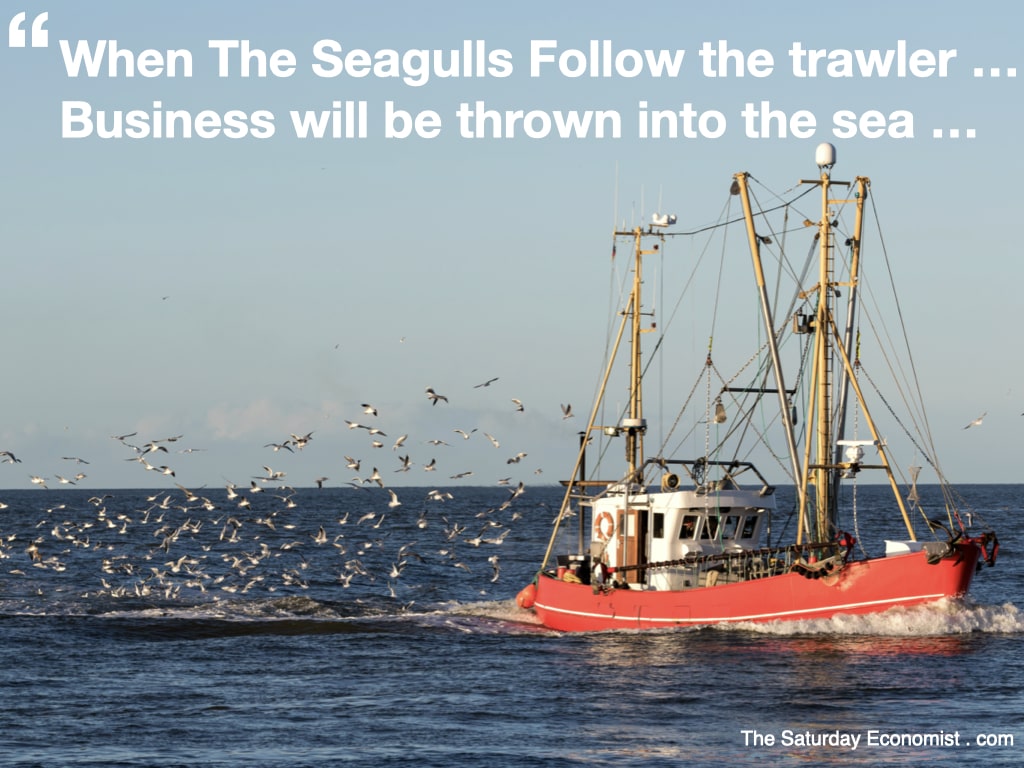
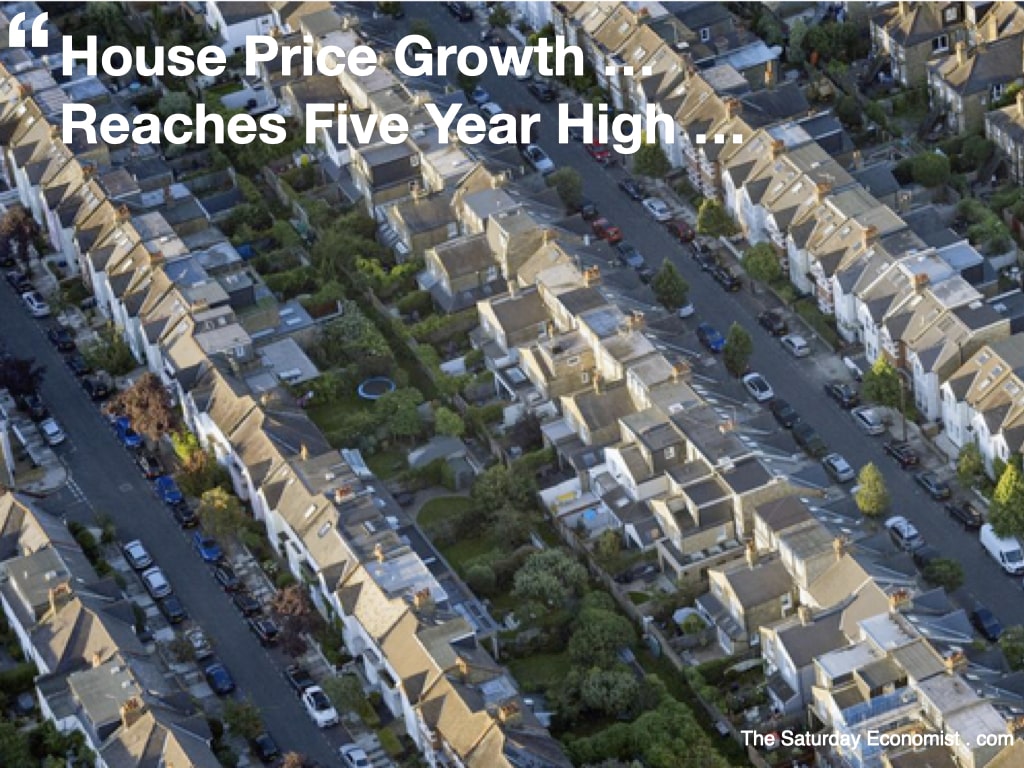

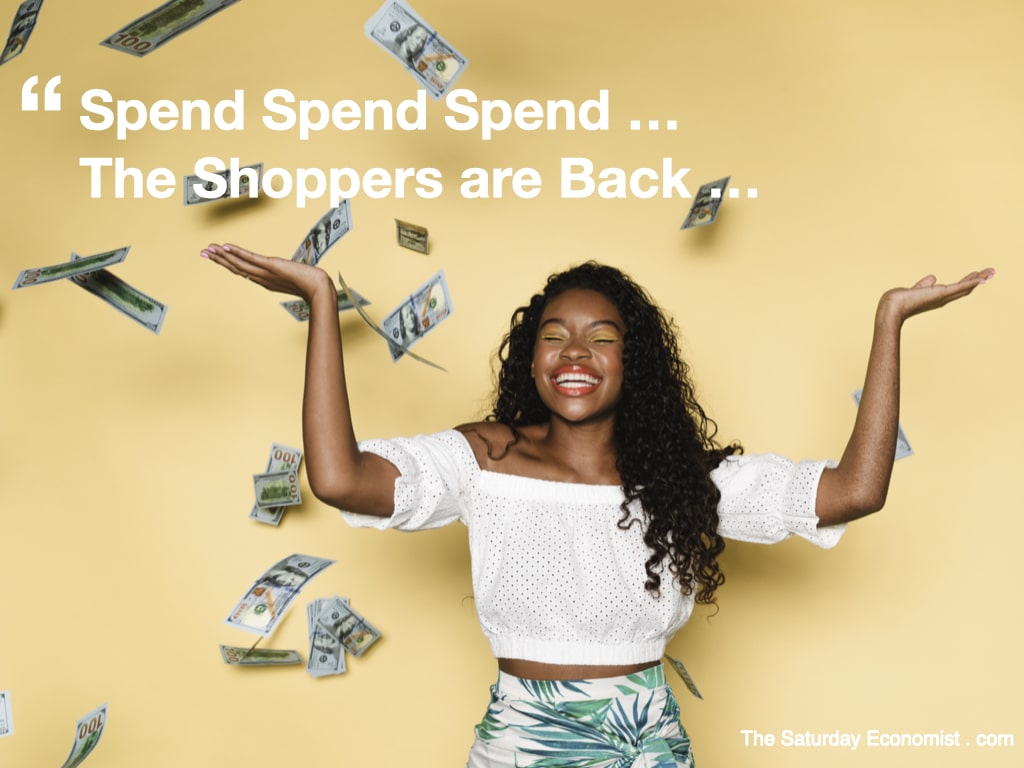
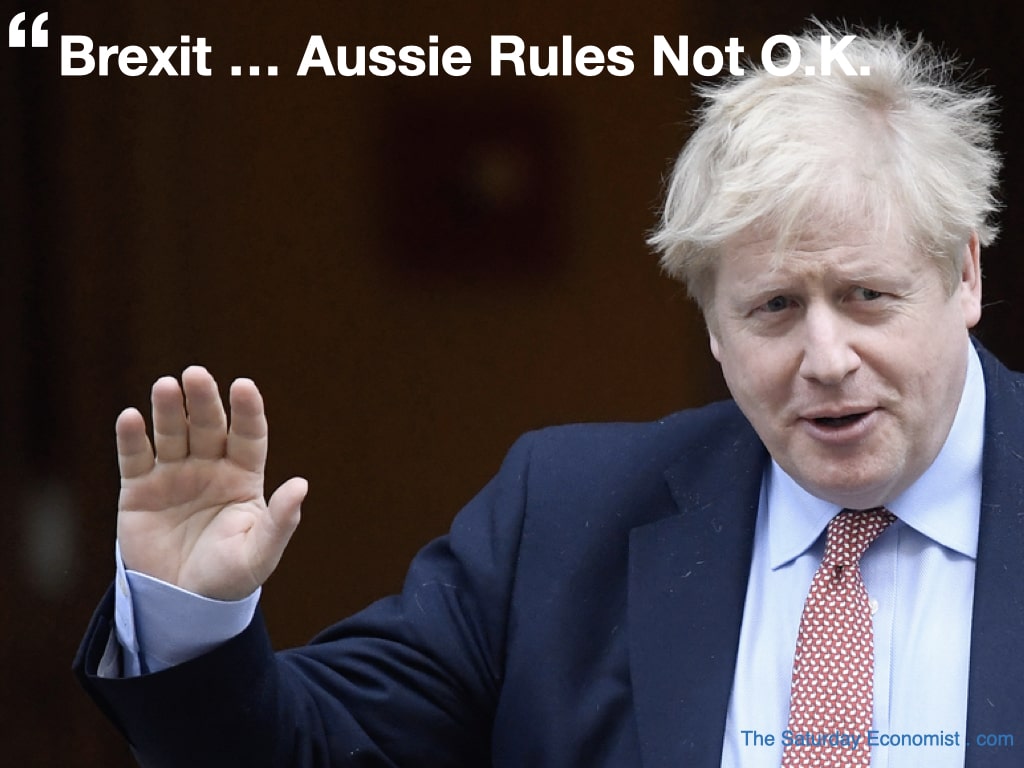
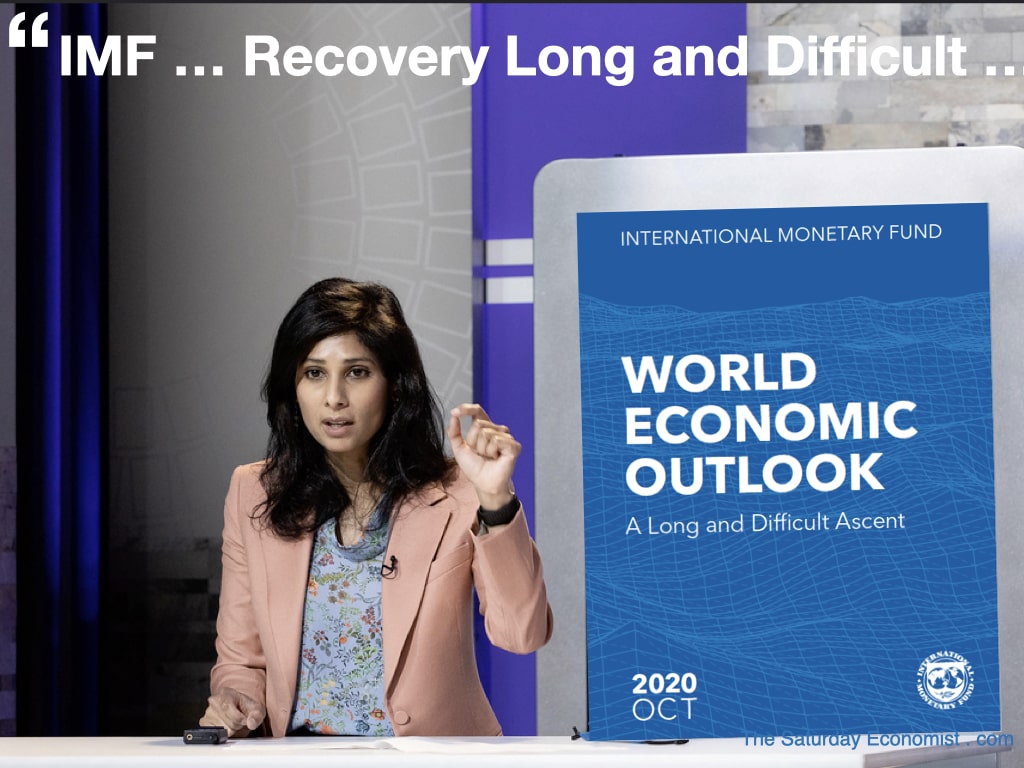
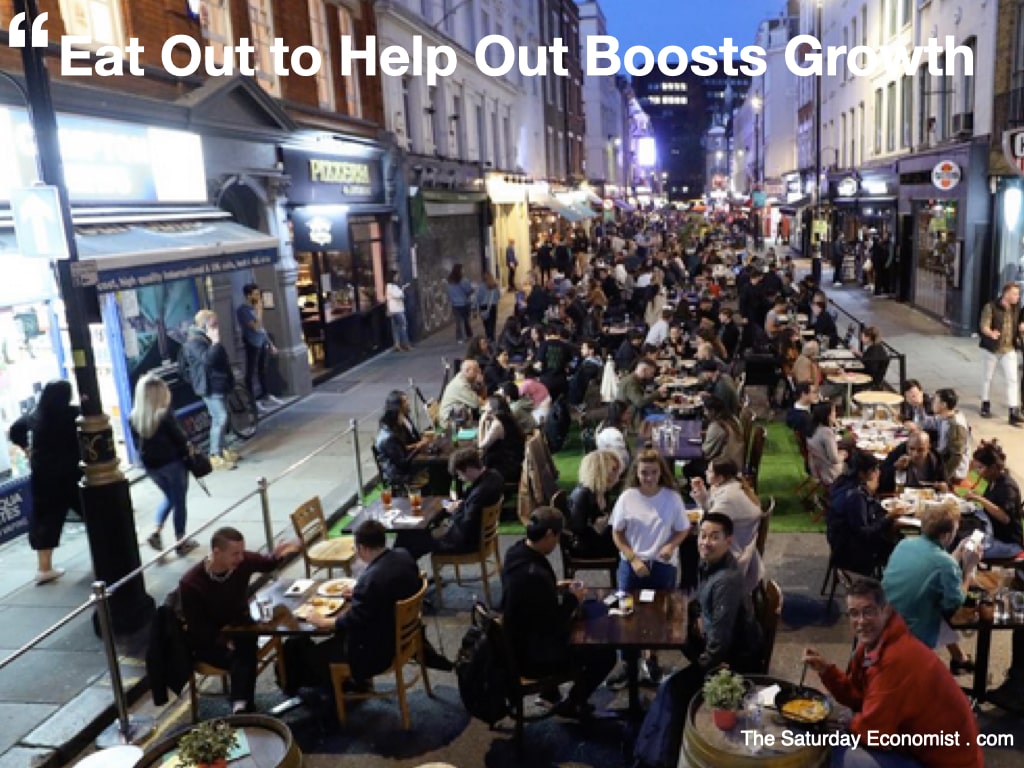
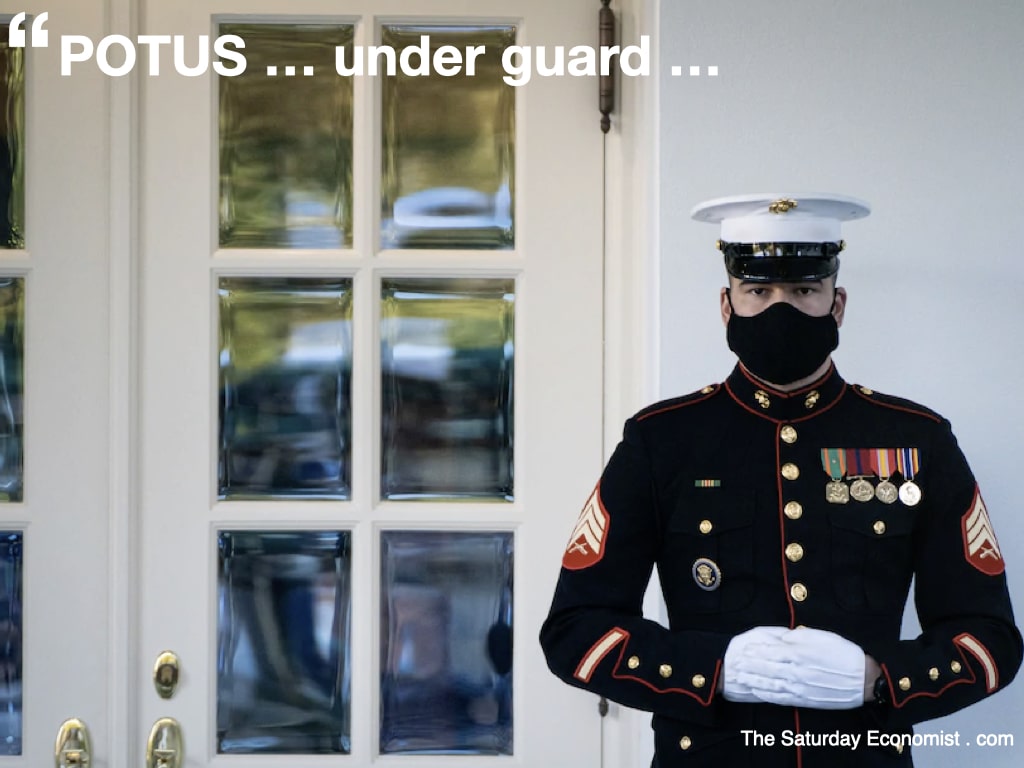
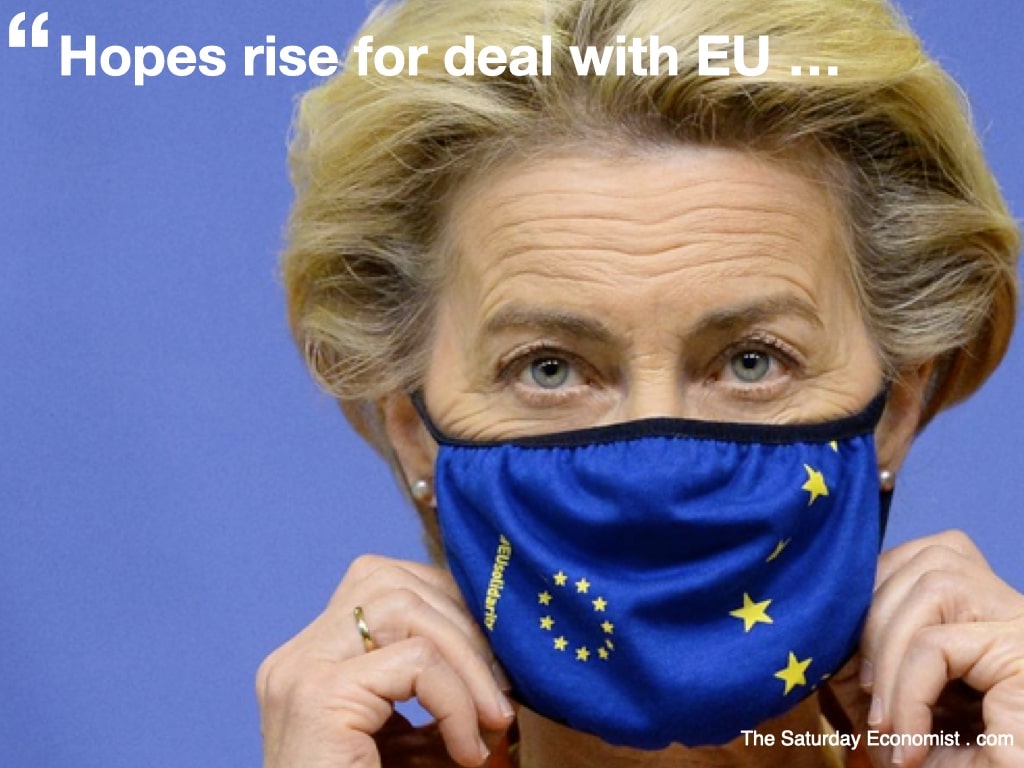
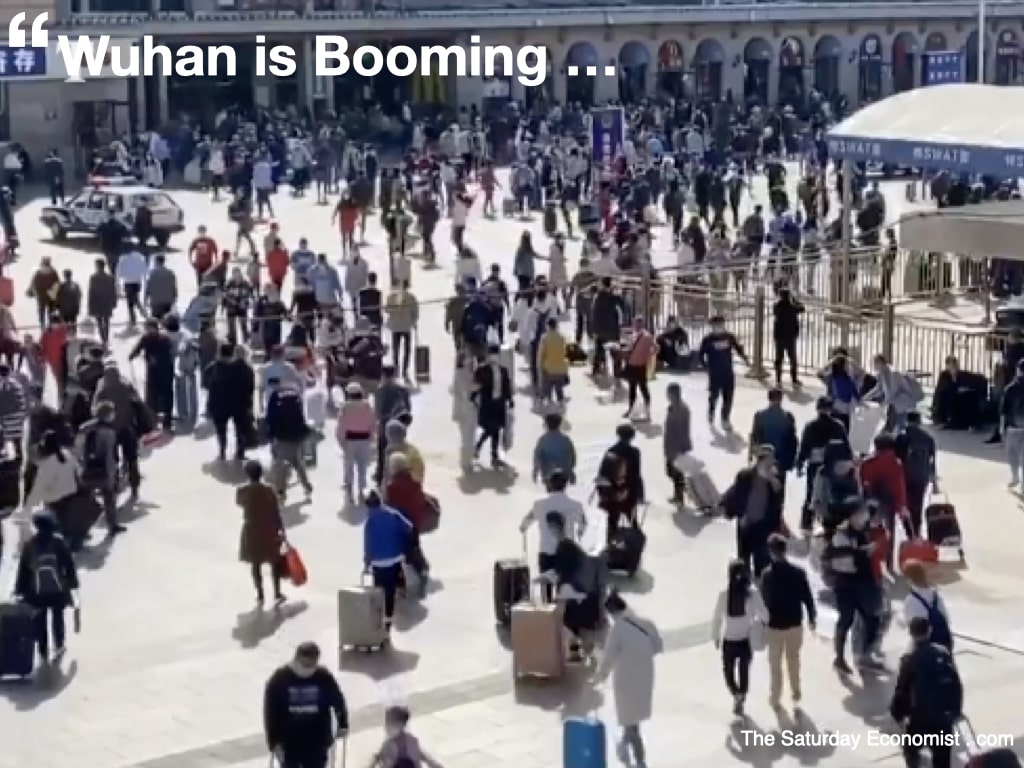
 RSS Feed
RSS Feed